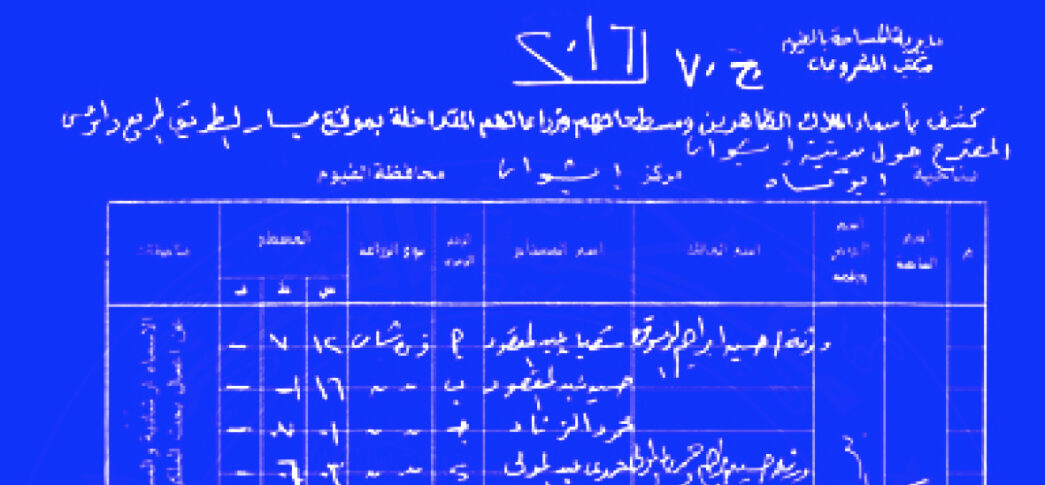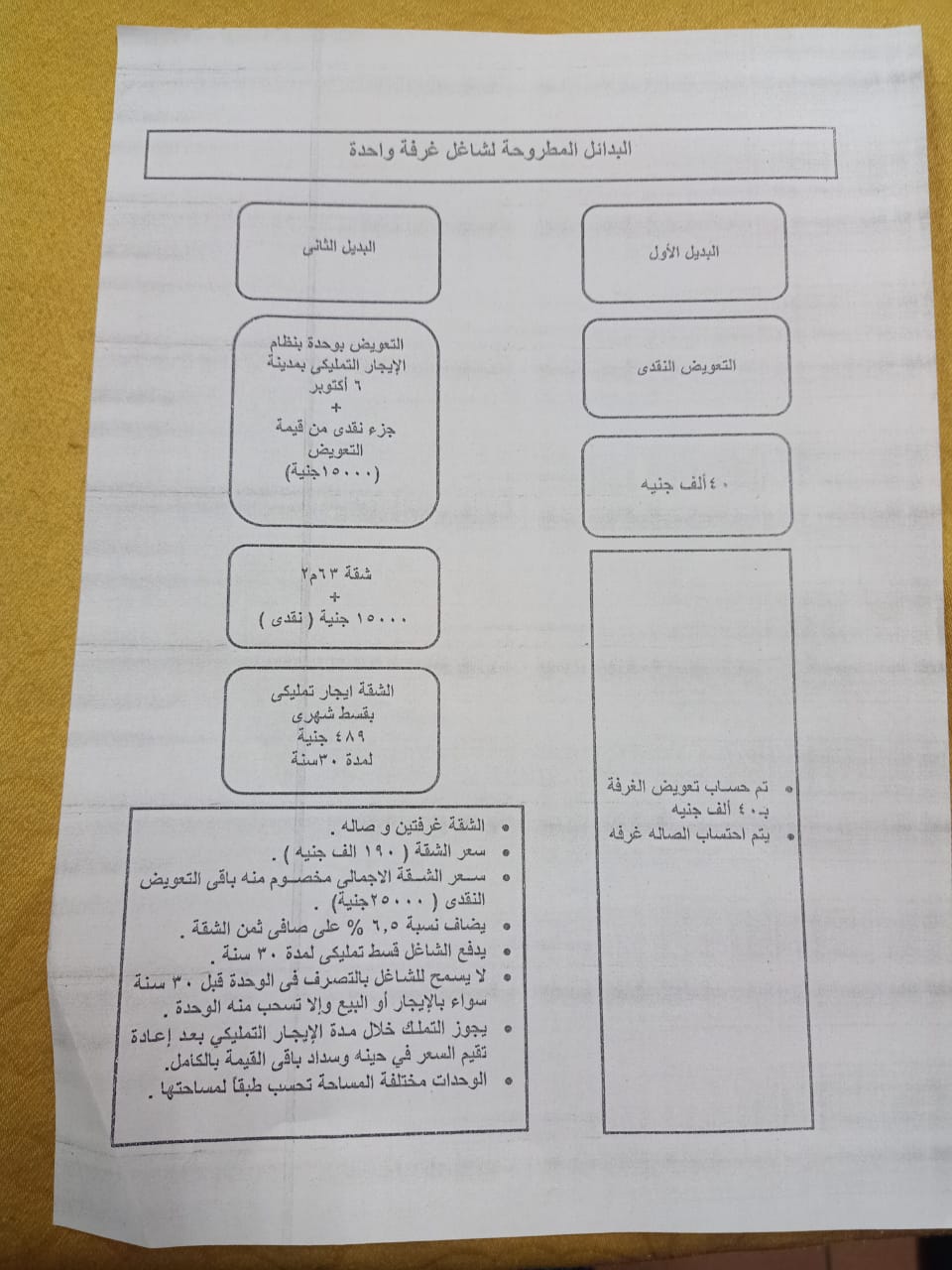
- Published on 26 May 2021
September 2020 saw the amendment of the Expropriation for Public Benefits Law[1] – Compulsory Order in the UK and Eminent Domain in the US). The main changes focused on technical matters,[2] comprising a stipulation to expropriating authorities to deposit the preliminary value of compensation in an interest-generating state-owned bank account. In the event compensation was paid out in time, the authority would keep the interest accrued. While if the payout was delayed, the interest accrued would then be paid to the owners. A third article was amended increasing the validity of the expropriation order from two to three years, which gives authorities more time to utilize the order.
These amendments are largely developments of legal reform to update the law in light of the 2014 Constitution that stipulated compensation be paid upfront, while according to parliament they would help ease the way for the government to implement “large national projects including the new highway network … water and sanitation projects to serve deprived areas, social housing projects that aim to eradicate slums.”[3] This reform also benefitted from a World Bank technical support program to improve Egypt’s ranking in its Ease of Doing Business index, specifically in the ‘land acquisition’ category.[4] This is the second major amendment that is part of the same reform package, following on a major one in April 2018, that added a stipulation to post a copy of the order on the property to be expropriated, pay an additional 20% over the valuation of the property as moral compensation, as well as remove the stipulation to deduct any Betterment Levy fees that were owed to the government.
“Social” Compensation
Despite this legal reform, recent highway projects that have required the expropriation and demolition of hundreds of buildings have stirred controversy overcompensation or the need to implement them. Most infamous of these was the al-Zumour axis in Giza, where a section of elevated highway scraped the facades of several buildings, rendering the first few floors uninhabitable.[5] The expropriation orders did not include them because the law only deals with property that is required to be physically used, and not necessarily that affected by a project.
In the Tersa Axis and Ring Road expansions in Greater Cairo, the expropriation law was not even implemented on most buildings that have been demolished to make way for these roads. Instead, the government promised both owners and tenants a flat-rate compensation of LE 40,000 per habitable room (Figure 1),[6] which residents complained was much lower than the market value of the homes. The Minister of Transport later explained in an interview that this “social compensation” provided was more than enough for residents to vacate the units that the government considered informal construction and thus were not due any compensation. [7]

figure 1: A compensation form distributed by Giza governorate to owners and tenants on the Tersa Axis (Al-Youm al-Sabe’)
In addition to the compensation that was much lower than the market value of the homes, and not implementing the expropriation law, an MP in the Omraniya district of Giza received complaints that compensation was also delayed and that residents surrendered their property before it was paid in full.[8] In another section of the Tersa Axis, owners appealed to the government to stop the expropriation of their homes. Not only was the compensation below market value, but also the buildings due to be demolished would only provide an extra 140 cm to the road.[9]
Further Amendments
Owners’ grievances against current expropriation practices have led MP Ihab Mansour to put forward a motion in parliament to discuss them with the ministers of local development, housing and transport.[10] In response, parliament’s Local Development Committee held a discussion proposing amendments to the expropriation law recommending that informal buildings have a clear form of compensation, owners and tenants receive different compensation, and that valuation methods are more transparent.[11]
It is encouraging to see recommendations in the owners’ favour, however, these controversies reveal how the expropriation law itself is not the only problem but should be seen within the larger legislative framework governing residents’ participation in urban development as well as that of tenure security. Therefore, a wider discussion of the law is needed to meet all grievances. The expropriation law’s scope must be widened to include all forms of damage to property and not just the loss of it, leading to just and fair compensation that is fully paid in advance, while putting into place a mechanism allowing for contestation of the value before surrendering the property.
Current policies and laws regulating urban development, road and infrastructure projects must improve resident participation practices. In Egypt’s current road design code, participation is only recommended during the detailed design phase, but it is not required nor is it recommended in the preliminary design phase.[12] The Unified Building Law’s provisions on participation in urban development projects must also be improved (Art. 14),[13] as well as implemented.
While these provisions may slow the pace of project implementation, they will ensure that projects are more relevant to residents, decrease the need for expropriation, as well as result in fairer compensation for those affected.
Sources
[1] “Law 10/1990,” Expropriation for Public Benefit (Including amendments) § (1990), https://www.cc.gov.eg/legislation_single?id=404886
[2] “Law 187/2020,” Amending Expropriation for Public Benefit Law 10/1990 § (2020), https://www.cc.gov.eg/i/l/404666.pdf. For the full law see: Law 10/1990
[3] Parliament. House of Representatives, “Taqrir Al-Lagna al-Mushtaraka… `an Mashru` Qanun Muqaddam Min al-Hukuma Bi Ta`dil Ba`d Ahkam al-Qanun Raqam 10 Li Sanat 1990 Bi Sha’n Naz` Milkiyat al-`aqarat Lil-Manfa`a al-`amma” (Cairo: Parliament. House of Representatives, November 2017), 4–5, https://www.diigo.com/item/pdf/2r7n0/ad41
[4] World Bank, “Egypt – Policy Note on Public Land Acquisition and Institutional Reforms: Application of Eminent Domain Principles” (Washington D.C.: World Bank, June 2017), http://documents.worldbank.org/curated/en/330071507119993972/Egypt-Policy-note-on-public-land-acquisition-and-institutional-reforms-application-of-eminent-domain-principles
[5] DW, Cairo’s Baffling Bridge Project Pushes Ahead, 2020, https://www.dw.com/en/cairos-baffling-bridge-project-pushes-ahead/av-53490310
[6] Al-Youm al-Sabe‘, “Ta’widat Sukan Tersa Bi-l-Giza… al-Ghurfa Bi 40 Alf Juneih Wa Wehdat Badila Bi October,” May 4, 2020, https://archive.is/PVVS4; Al-Youm al-Sabe‘, “Muhafiz Al-Qahira: Ta’widat ’aqarat Tawsi’at Da’iri al-Basatin Tuqadar Bi 40 Alf Junayh Li-l-Ghurfa,” January 25, 2021, https://archive.is/PDcOI
[7] Al-Shorouk, “Video.. al-naql: Ta’awid ashab al-manazil al-mutadaririn min tawasu’at al-tariq bi 40 alf junayh li-l-hugra,” February 26, 2021, https://www.shorouknews.com/news/view.aspx?cdate=26022021&id=37267811-5171-433f-aeb7-83b9a02081ea
[8] Al-Masry al-Youm, “Talab ihata bi-l-parlaman li-bahth aliyat ta’wid al-muwatinin fi hal naz’a milkiyat al-’aqarat,” March 24, 2021, https://www.almasryalyoum.com/news/details/2295589
[9] Mohamed Al-’aryan, “422 Usra Bi Shara’tersa Yastaghithoun,” Al-Ahram, February 12, 2021, http://gate.ahram.org.eg/News/2605824.aspx
[10] Al-Masry al-Youm, “Talab ihata bi-l-parlaman li-bahth aliyat ta’wid al-muwatinin fi hal naz’a milkiyat al-’aqarat.”
[11] Al-Ahram, “Mahaliat Al-Nuwab Tuwsi Bi-Ijra’ Ta’dil Tashri’i ’ala Qanun Naz’a Milkiyat al- ’Aqarat Li-l-Manfa’a al-’ama,” April 21, 2021, https://gate.ahram.org.eg/News/2698113.aspx
[12] Ministry of Housing, Utilities and Urban Communities, “Al-Kod al-Masri Li-a’mal al-Turuq al-Hadariya Wal-Khalawiya – Al-Guz’ al-Awwal: Al-Dirasat al-Awaliya Li-l-Turuq (The Egyptian Code for Local and Regional Roads – Part 1: Preliminary Road Studies)” (Cairo: Ministry of Housing, Utilities and Urban Communities, 1998), 68–69, https://drive.google.com/file/d/0BwTqC1X60rp0eW5ncDYwLXJWVUU/view
[13] “Minister of Housing, Utilities and Urban Communities Decree 144/2009,” Enacting the Bylaws of the Building Law 119/2008 § (2009), https://www.diigo.com/user/arshifalomran/b/530815177
